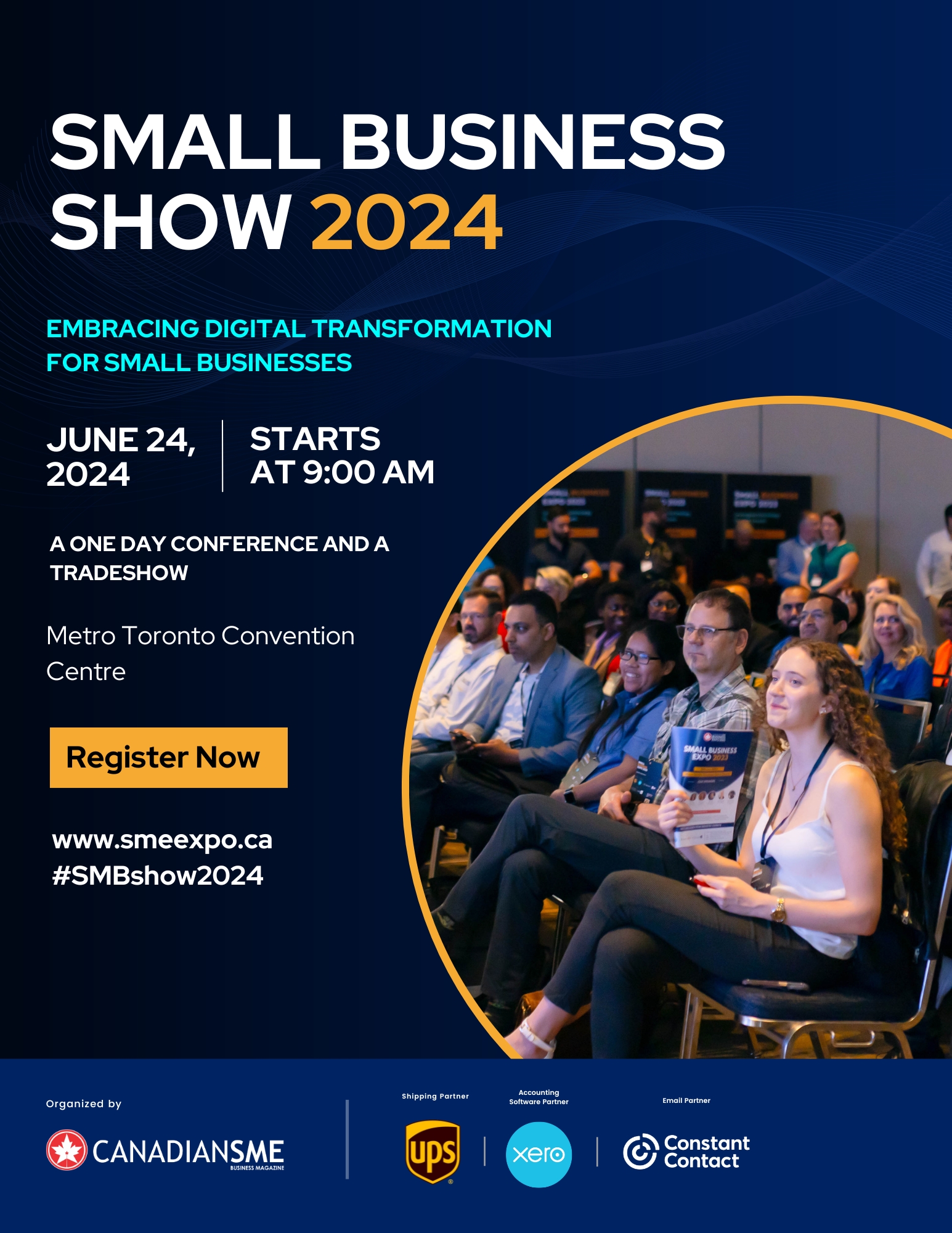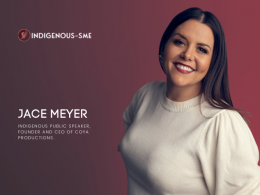The Canadian economy benefits greatly from the contributions made by Indigenous groups. A recent study by PayPal on The Power of Indigenous Entrepreneurship in Canada states that the Indigenous sector contributes $32 billion yearly to Canada’s GDP, which is expected to rise to $100 billion by 2024 if the community makes full use of their potential. In the total population of Canada, Indigenous people make up about 5% of the population, representing over 700 different communities. Indigenous peoples in Canada are the nation’s youngest and fastest-growing demographic, with 46% of the population under 25 years old.
The Indigenous population is demonstrating entrepreneurial skills in various ways with enormous potential. Here are 5 Indigenous entrepreneurs making a difference in their communities.
- Three Sisters by Emma
Three Sisters by Emma was born out of a love of beading, fashion, and sisterhood and produces everyday heirlooms influenced by ancient Métis crafting methods and a modern sense of colour and style.
The name of the business ‘Three Sisters by Emma’ was inspired by a few different elements. When Emma started beading, her first project was to make a pair of earrings for each of her three sisters, who encouraged her to continue. The Three Sisters is a traditional Indigenous food group that includes corn, beans, and squash. It is a prime example of an early Indigenous food group, as each plant contributes something special and necessary to the group, strengthening the soil and making for a satisfying meal afterwards. Like the food group, Emma and her sisters are connected and have the opportunity to nourish and support one another.
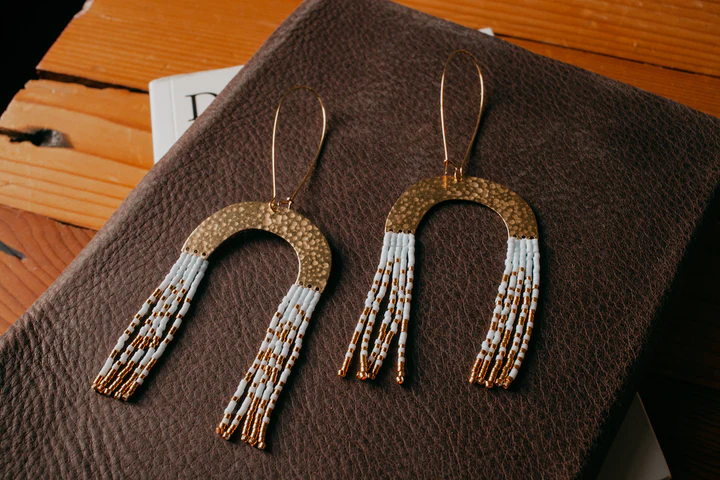
‘Three Sisters’ reflects her understanding of tradition, sustainability, and the importance of relationships. Many of her designs use geometric patterns of arrows and triangles, reminiscent of the Métis sash. Her love of the land also inspires the patterns, colors, and names that take form in her earrings.
- Birch Bark Coffee Company
Birch Bark Coffee Company is a 2018 organic, fair trade coffee that is Simbolo de Pequeños Productores (SPP) certified, meaning it is grown and produced by farmers that are Indigenous descendants.
The Birch Bark Coffee Company believes that a continuing process of choice develops individual and communal self-determination and encourages individuals to take charge of their own social, cultural, and economic advancement while ensuring that their beans are responsibly sourced.
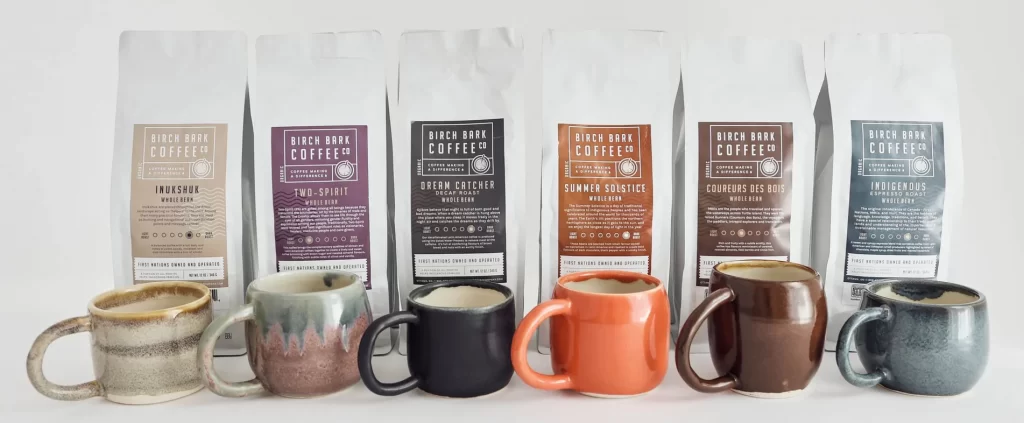
They offer 6 different blends from which the blend that suits you can be selected. They are certified organic; this means they make use of the organic logo in Canada, which is permitted on products that have an organic content that is greater than or equal to 95% and have been certified according to the requirements of the Canada Organic Regime. Along with SPP, they are a Fair Trade product which promotes solidarity with farmers and workers, helps advocate for economic sustainability for all, and votes for trade justice.
- Mother Earth Essentials
Mother Earth Essentials is an Indigenous-owned Canadian-made natural beauty and lifestyle products company that creates luxurious bath and beauty products from natural ingredients and traditional recipes.
Mother Earth Essentials was founded by Carrie Armstrong, who comes from a long line of Cree Medicine Women. She started to form the idea for a bath and beauty line business during her first teaching job at Amiskwaciy Academy, where she used traditional plants to connect the students to their history. Before teaching, she worked as an esthetician and cosmetic sales rep in the beauty and retail industry. These combined experiences helped her on the path to launching her collection of natural products through Mother Earth Essentials.
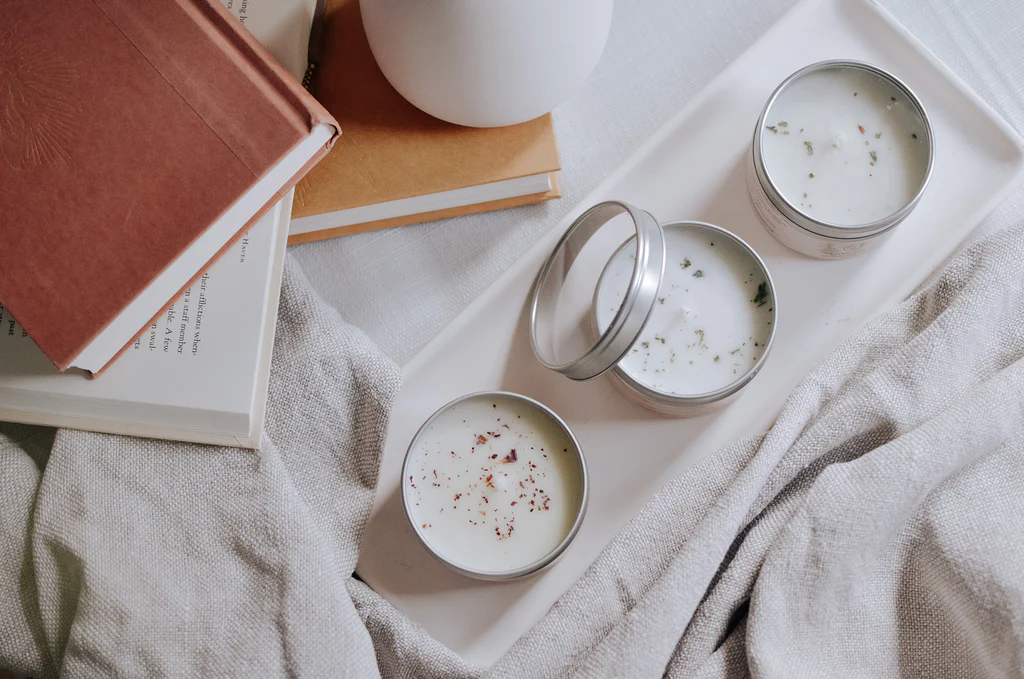
Carrie possessed plant knowledge and natural recipes that she wanted to share with others, but the generational lessons were in danger because her mother and aunt had been sent to residential school. In order to build and expand the foundations for Mother Earth products, she collaborated with her grandmother, the elders, and the medicine people.
- Likely General
Likely General is an artist-focused shop and gallery primarily supporting the expressions of 300 women, queer and marginalized artists since 2013. It transformed quickly from an art-based general shop into a multipurpose location that organically, ethically, and amiably brought artists and the public together.
In late 2014, Brooke Manning founded Likely General to introduce workshops, events, book launches, lectures, and the Likely General Gallery, a community-minded gallery offering a new exhibit once a month. Aid to them not only directly supports small, independently run enterprises run by artists, but also encourages and promotes the continued production of art.
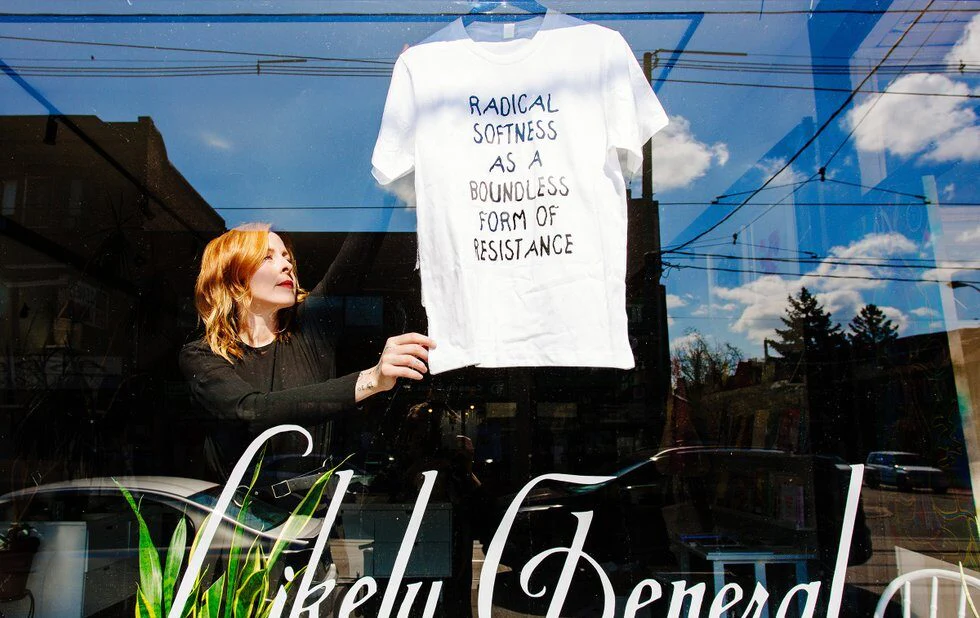
Motivated by responsible consumerism, empathy, and transparency, they created a monthly donation goal and budget in 2014, distributing throughout the community and beyond based on need and urgency. In 2020 and 2021, they have donated these funds to Foodshare, ESN, Sistering, Nellies Shelter, Toronto Prisoners Project, Toronto Rape Crisis Centre, Wet’suwet’en Legal Fund, Ocama Collective, Black Lives Matter, Black Legal Action Centre, and the community of KI.
- SunHeart Rises Designs
SunHeart Rises Designs is owned and operated by Indigenous artisan Trip Phoenix and specializes in traditional and contemporary Indigenous jewelry and accessories made from leather, bone, horn, glass, shell, and other natural materials.
Trip Phoenix is the owner and creator of Sun Heart Rises Designs, an urban Indigenous artist from the Mohawk and Tayrona nations and a member of the Native community of Toronto. Trip is a self-taught artisan who learned much of his craft from observing other artisans and learning about the natural materials used to make his designs. He crafts chokers, bracelets, necklaces, and other jewelry, created from sinew, leather, crow, and tiled beads. Passionate about discovering different new styles, Trip is always learning and experimenting. He gets much of his inspiration from nature. Animals and the natural world play a big part in many of his designs.
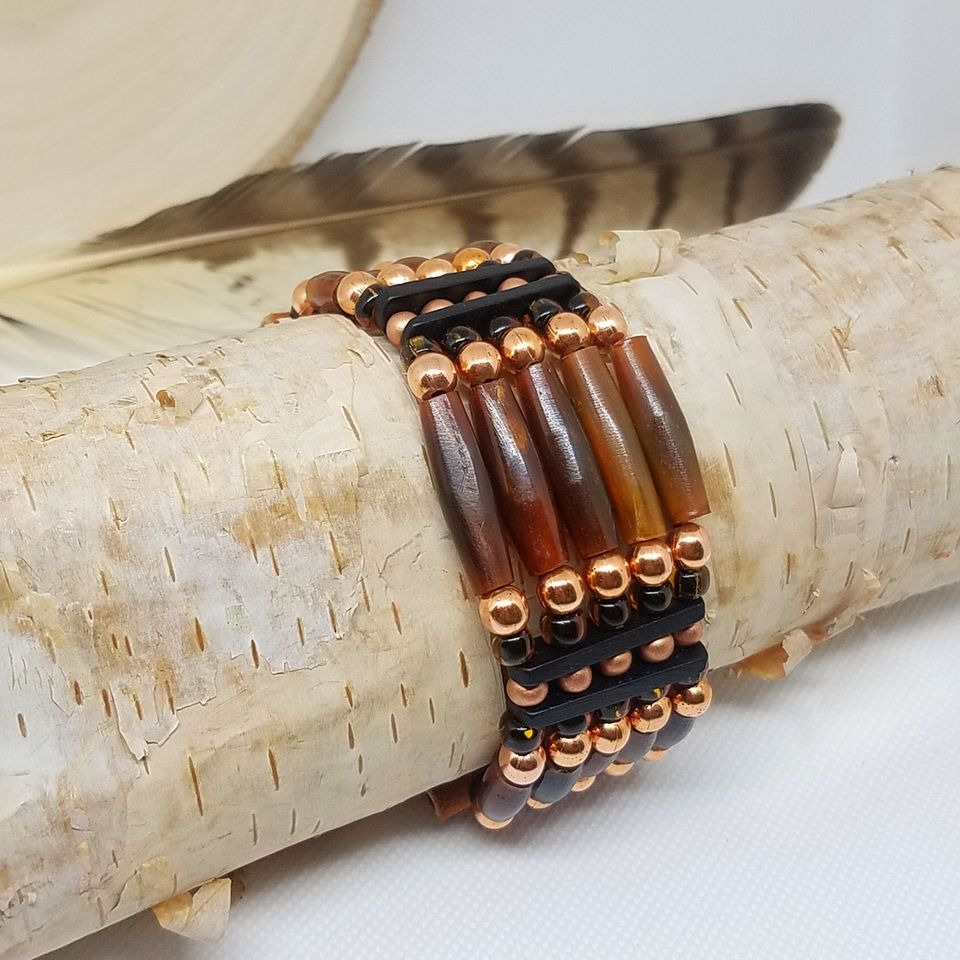
Based in Ontario, Indigenous jewelry and accessories include First Nations Buffalo bone and horn chokers, breastplates, necklaces, bracelets, southwest style beaded necklaces and earrings, semi-precious necklaces and rings, and leather cuffs.
More than 43,000 privately held Indigenous-owned companies exist, and the proportion of profitable Indigenous companies has climbed by 15%. The growth rate of self-employed Indigenous people is also seen to be higher than the growth rate of self-employed Canadians overall. Along with these statistics, the success stories of these Indigenous entrepreneurs inspire more people to pursue careers in business at a time when government policy, business involvement, and economic development prioritize reconciliation with Indigenous peoples.
Indigenous business owners serve as role models for the community, serving as inspiration for them to create their own sources of self-employment. Subscribe to Indigenous SME Business Magazine to read more about these success stories, and follow us on Twitter at @IndigenousSME for the most recent information.


